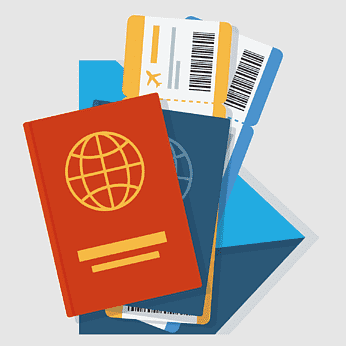Personal loans are one of the most common ways for people to borrow money today. They are helpful when you need extra funds for things like paying off credit card debt, making home improvements, covering medical bills, or handling unexpected expenses. If you’ve ever considered applying for a personal loan, this guide will help you understand what a personal loan is, how it works, and whether it’s the right choice for your financial needs.
What Is a Personal Loan?
A personal loan is money you borrow from a bank, credit union, or online lender that you pay back in fixed monthly payments over time. Most personal loans are unsecured, which means you do not need to put up anything like a house or car as a guarantee, unlike secured loans such as mortgages or auto loans. The lender trusts that you will repay the loan based on your credit history, income, and other financial details.
The amount you can borrow through a personal loan usually ranges from $1,000 to $50,000, although some lenders offer more or less depending on your situation. Personal loans also come with fixed interest rates, meaning your monthly payment stays the same until the loan is paid off. This makes it easier to plan and budget your finances.
How Does a Personal Loan Work?
When you apply for a personal loan, the lender checks your credit score, income, job history, and other financial information to decide if you qualify. This process is called underwriting. If the lender approves your application, they will offer you loan terms, including the amount you can borrow, the interest rate, the length of the loan, and the monthly payment.
After you accept the offer, the money is usually deposited into your bank account within a few days. You will then start making regular monthly payments on a set schedule—usually over one to seven years. Each monthly payment includes part of the amount you borrowed (called the principal) and part of the interest the lender charges for letting you borrow the money.
If you pay on time every month, the loan will be paid off by the end of the term. However, if you miss payments, you may face penalties, and your credit score could be negatively affected.
What Can You Use a Personal Loan For?
One of the main reasons people choose personal loans is because they can be used for many different purposes. Common uses include paying off high-interest credit card debt by consolidating it into one lower-interest loan. This can help you save money and manage your debt more easily.
People also use personal loans to cover big expenses like home renovations, weddings, vacations, or even unexpected medical bills. Some borrowers take out personal loans to cover moving expenses, education-related costs, or to start a small business. It is important to remember that even though personal loans are flexible, you should use them wisely and only borrow what you truly need and can afford to pay back.
Pros and Cons of Personal Loans
Like any financial product, personal loans come with both advantages and disadvantages. One major benefit is that personal loans do not require collateral, so you do not risk losing your home or car if you cannot repay the loan. They also offer fixed payments, which can make budgeting easier, and often have lower interest rates than credit cards, especially if you have good credit.
However, personal loans also have some drawbacks. If you have bad credit, you might be offered a high interest rate, which makes the loan more expensive. Some lenders charge fees such as origination fees, late fees, or prepayment penalties. Also, because it is still a form of debt, taking out a personal loan can hurt your credit if you fail to make payments on time.
Who Is Eligible for a Personal Loan?
To qualify for a personal loan, lenders look at several factors. Your credit score is one of the most important. In general, a score of 660 or higher gives you a better chance of getting approved with a good interest rate. Lenders also consider your income, employment history, and how much debt you already have. This is called your debt-to-income ratio.
If you have a stable job, a low amount of existing debt, and a good credit history, you are more likely to be approved. That said, some lenders also offer personal loans for people with poor credit, though these often come with higher rates and stricter terms.
Where Can You Get a Personal Loan?
Today, there are many ways to get a personal loan. You can apply through traditional banks or credit unions, or use one of many online lenders that offer fast applications and quick approvals. Some of the most popular personal loan providers in the United States include SoFi, LendingClub, Upgrade, Marcus by Goldman Sachs, and Upstart.
Each lender has its own set of requirements and loan terms, so it’s a good idea to shop around and compare offers. Look at the interest rate (called the APR), the loan amount, repayment terms, and any extra fees. Using a loan comparison website or loan marketplace can help make this easier.
How Does a Personal Loan Affect Your Credit?
Personal loans can affect your credit score in both good and bad ways. If you make your payments on time each month, it can help build your credit history and improve your score. This is especially true if you’re using the loan to pay off high-interest credit card debt, which lowers your credit utilization ratio.
However, if you miss payments or default on the loan, your credit score can drop, and the lender may send your account to a collection agency. Also, applying for multiple loans in a short time can result in several hard inquiries on your credit report, which may temporarily lower your score.
Is a Personal Loan Right for You?
A personal loan can be a smart financial tool if used carefully. It can help you manage debt, handle emergencies, or fund important goals when you don’t have the cash available. However, it’s important to consider whether you truly need to borrow money, and whether you can afford to repay it on time.
Ask yourself if you have a solid reason for borrowing, whether your income is stable, and if the loan will improve your overall financial situation. Always read the loan terms carefully, understand the costs involved, and compare different lenders before making a decision.
Final Thoughts
Understanding how personal loans work is the first step to using them wisely. By knowing what to expect—from applying and qualifying to repayment and potential risks—you can make better decisions for your financial future. Personal loans offer flexibility and convenience, but they also come with responsibility.
If you’re ready to explore your options, start by comparing trusted lenders, reviewing your credit, and calculating how much you can safely afford to borrow. When used for the right reasons, a personal loan can help you stay on track, manage expenses, and achieve your goals with confidence.

